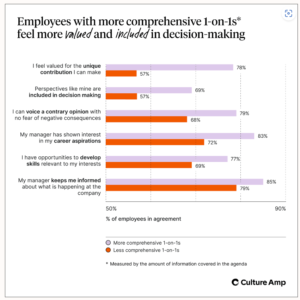The other day I caught myself. I was scrolling through Instagram on my phone – pulling up funny parrot videos (my latest thing – birds are so cute!) while my husband was trying to talk to me. As soon as I realized what I was doing, I closed out the video and put my phone down, turning my full attention on my husband.
Why tell you this? Just want you to know I’m human too. And, even though I am writing an article about the importance of listening, I also have to remind myself of that very thing now and then.
So often we don’t listen to people—I mean really listen—because we’re distracted by other stuff… Phones, email, etc. pull our attention away. And then we miss out.
Admit it, you’re nowhere near as good at multi-tasking as you think you are.
Listening gets very little attention in the world of business communication. I picked up a text book on the essentials of business communication the other day, and out of 537 pages of information, Listening took up less than 2. For the math enthusiasts in the crowd, that’s 0.003%. We’re literally setting up future business leaders to devote almost no time to listening. It’s no wonder we have such an epidemic of not listening floating around workplaces.
How well do we do on the listening front? Not so well, according to survey data.
Companies pay big bucks to carry out employee engagement surveys. They get all kinds of feedback which they swiftly ignore if it’s uncomfortable or doesn’t fit their plans. Employees often cite lack of communication as one of their chief complaints about their companies. Yet companies think they’re doing all the right things communication-wise. Why the disconnect?
Data gathered by The Workforce Institute tells us that 86% of employees feel their voice isn’t heard fairly or equally, and 67% feel outright ignored.
This is a big, big deal for management and leadership.
Think of what you gain from listening to your employees. People in the field and on the front lines gain valuable insights from customers which they should be encouraged to share with their bosses. The benefit is this feedback and knowledge is information gained right when the organization needs it, when change is possible and much less expensive to implement versus after things are too far entrenched. Also beneficial is the fact that customers appreciate being listened to. Their trust in the company goes up, along with their likelihood to do more business and refer others.
Who else should be listened to? Employees.
As said above, employees feel largely disregarded or ignored. That’s a real shame, because employees have a great deal to offer organizations. After all, they do the work day in and day out. They have first-hand experience in what works and doesn’t work. When team members share ideas and knowledge, this diversity of thought is highly beneficial to organizations.
One of the best conduits for this type of information is the One-On-One Conversation. People who know me will tell you I’m big on the one-on-one. It’s the cornerstone of my book, my training, and my personal leadership philosophy. You see, it’s in these conversations that managers:
- Gain the knowledge needed to make decisions and solve problems
- Gain insight into who their team members are and what makes them tick i.e. what motivates them or de-motivates them, as the case may be
- Build relationships and trust, which has the added benefit of…
- creating a psychologically safe environment in which people feel they can be themselves and share their voices
- demonstrate how much they value their team members

Yet, there are some leaders who do take time to listen to their reports. Those leaders have loyal and devoted teams who are more productive and effective. They have people who are excited about their work and are inspired to try new things. They have team members who stay in their jobs longer and are happy to be there.
How to listen well (aka Active Listening):
- Pay attention
Let me share a personal story that illustrates the impact of this kind of listening and understanding, and the benefits gained.
I’d worked for a company for a few years and had gone as far up the ladder as I was going to go with the company. I liked my job but, honestly, had started to research other companies and jobs because I needed a new challenge. And then my dog died.
You see, my dog was really, really special to me. And when she died it gutted me. I was a wreck and messaged my boss, telling him I had to come into work late because I just couldn’t stop crying. His response? “Take all the time you need. I know how important that dog was to you, and I know how I’d feel if it was my dog. I trust you to make up the time when you’re back at work.”
Hearing + Understanding = Listening
I appreciated that simple act of understanding and empathy so much that I stayed with that company 2 more years. I was loyal to that man who showed me such kindness, and I noted that the rest of his team felt exactly the same way. It wasn’t until I was assigned to a new boss, who didn’t have that same level of care and attention, that I started looking for new opportunities again.
- Show them you’re listening.
To begin, put away your phone and close out your email. Lay aside anything that might take your attention away from them. Don’t underestimate the powerful message this conveys of how much you value what they’re going to say. Let them know you’re in the conversation by nodding your head, making eye contact, turning your body toward them (bonus points for getting out from behind your desk and sitting beside them), and even taking notes. Say something like “uh huh” every now and then so they know your mind hasn’t wondered. This is especially important if you are speaking over the phone.
- Provide feedback.
Repeat back what you heard, paraphrase to ensure you understand. Ask questions to gain more information, and take note of the answers.,
- Don’t interrupt or pass judgement.
When you interrupt, it sends the message that what you have to say is more interesting, accurate, or relevant than what they’re saying. When you pass judgement, you’re telling them what they think is worthless. Either way, it’s not conducive to further conversation.
- Respond appropriately.
If they’ve told you something of what they feel and think, they’re going to expect a response that is just as thoughtful. If you provide an inappropriate response, they’ll know you were not listening or don’t care. So, show you’ve listened by providing a thoughtful response. Treat the other person as you’d like to be treated—with courtesy and respect.
One-On-One Conversations are the key to successful communication throughout organizations, and managers are the most important part. When managers devote the time to these conversations, when the conversation includes discussion of aspirations and challenges, of successes and failures, and of support and coaching, understanding and trust are built. From there, great things can happen.
It all starts with listening.
Photo by Freepik
